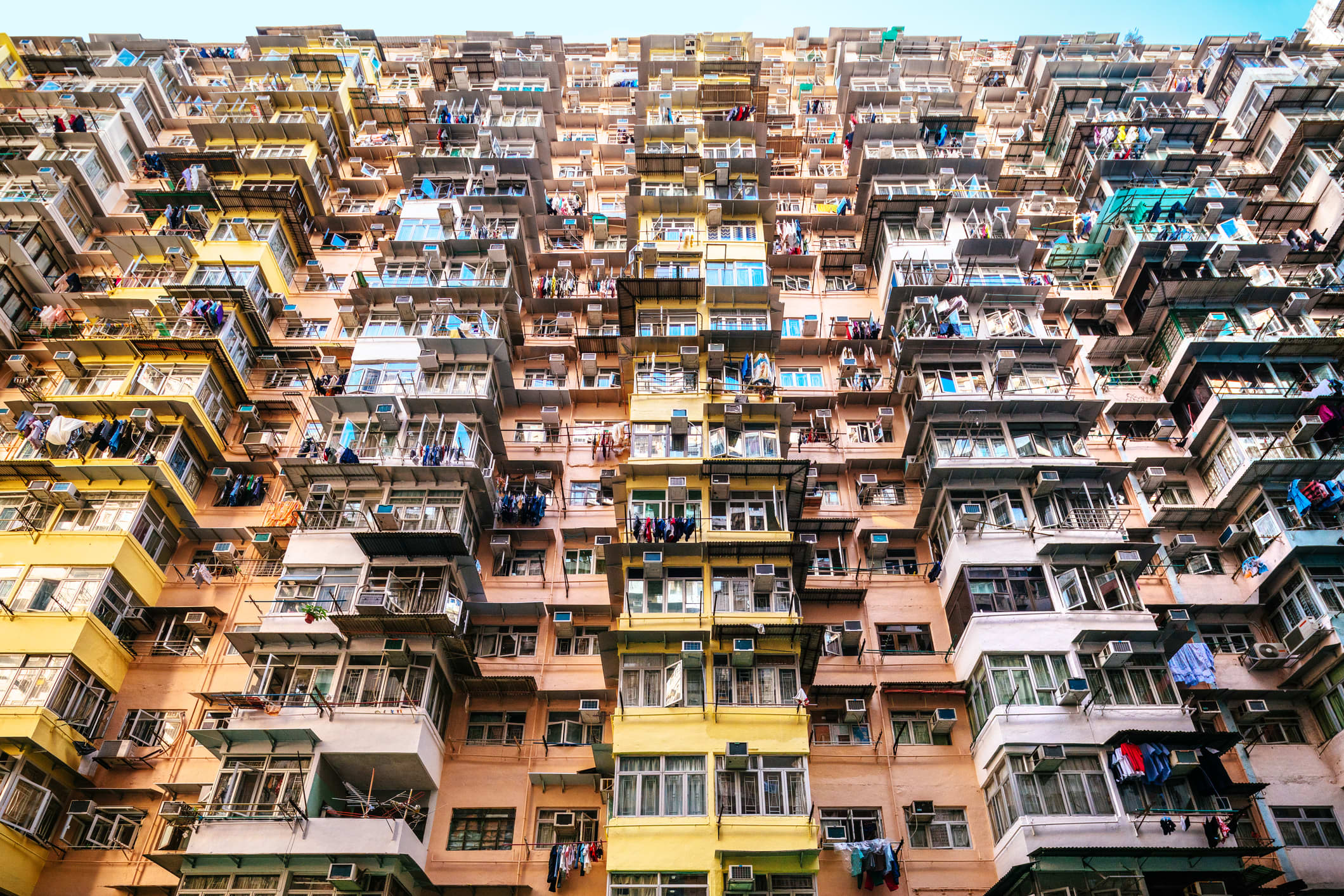
Apartments in Hong Kong
Getty Images
Amid the biggest political crisis Hong Kong has seen in over two decades, the world's most expensive housing market is "not looking good," Joseph Tsang, chairman of Hong Kong business at JLL told CNBC.
"Housing is always one of our major issues. It creates a lot of anxiety in society. Young people are finding it frustrating for buying their own house and to be successful," said Tsang, chairman of Hong Kong business at the commercial real estate services firm.
Hong Kong, a former British colony that returned to Chinese rule in 1997, has been mired in months of unrest.
Mass protests over a now-nixed extradition bill started in June, and has since evolved into a broader anti-government movement that has often led to violent clashes. Many economists and businessmen point out that among the issues fueling the protests, one major underlying problem could be the difficulty of owning a home.
Hong Kong has been repeatedly ranked as the most expensive place to own a home. The Asian financial hub has an average living space of about 13 square meters per person in 2018 — or an area smaller than the size of two standard bathtubs laid out side by side.
In a bid to restore confidence, Hong Kong's leader Carrie Lam introduced a series of housing policies last week to address some housing concerns.
"Every Hong Kong citizen and his family will no longer have to be troubled by or pre-occupied with the housing problem," Lam said during her annual policy speech on Wednesday. Instead, she said, "they will be able to have their own home in Hong Kong — a city in which we all have a share."
Fewer mainland Chinese buyers
Mainland Chinese have often been blamed for snapping up Hong Kong properties and driving up prices in the territory. But Tsang said there may not be as many Chinese buyers now as before.
"In the past 10 years, there has been a lot of (mainland Chinese) purchasers who entered into the Hong Kong market, but it has slowed down in the last two years because of the currency control," said Tsang.
Some Chinese investors have even reduced the amount of money they allocate for overseas property purchases due to Beijing's tight capital outflow regulations. And with the current social unrest, "there are less and less (mainland) buyers in Hong Kong," said Tsang.
The active players in the Hong Kong property market are mostly locals because foreign buyers think prices are too high in comparison to properties back home, he added.
"Looking ahead, not looking good. We foresee, over next year, another 10 to 15 corrections downwards," said Tsang.
Lack of land supply
In the long run, Lam's new policies may give developers a boost and offer some help for purchasers, said Hannah Jeong, head of valuation and advisory services at global commercial real estate services firm Colliers.
But don't expect sky high property prices to drop, she cautioned — because the fundamental issue with Hong Kong's property market is a lack of supply as compared with demand.
JLL's Tsang agreed. He said there's no indication of a rosy future for the Hong Kong housing market.
The Hong Kong property market is affected by three factors: the performance of the "internal economy," the state of the global economy and the political stability in the city.
Analyzing the Asian financial hub's internal economy, Tsang said: "We can be certain, Hong Kong will suffer from the past five months of instability."
"We are surrounded globally, a lot of bad news in terms of economy. That's not going to help," he added citing the global slowdown triggered by the U.S.-China trade war, trade disputes between the U.S. and Europe, Brexit and a slowing Chinese economy.
On top of all that, he said, Hong Kong is "currently under a severe situation, whereby we have never experienced before. Our social stability is now under threat, we think it is going to affect a lot of psychology and (local buyers') purchasing decisions."
Land prices in Hong Kong soared 30% in the last 5 years, according to Collier's Jeong. That directly translates into the prices paid by customers, she pointed out.
"In 2018, the housing market price was on the lower side. What does that mean? People have a lot of cash in Hong Kong, and people were waiting for the right opportunity," said Jeong.
Based on government rating and valuation department data, property valuations grew 10% between December and May.
"In Colliers, our valuation inquiries for residential mortgage financing purposes increased 5% after the policy address compared to the previous month," she said, referring to Lam's speech last week.
"In 2020, we expect that the mass residential market will maintain its upward trend of 5% to 8% while the luxury market will be adjust slightly downwards," she said.
Jeong added that last years numbers were driven by first-hand sales. But in 2020, she said the secondary market could drive those numbers, given the relaxation of loan-to-value ratio policies and a low interest rate environment.
Reaed More
Post a Comment